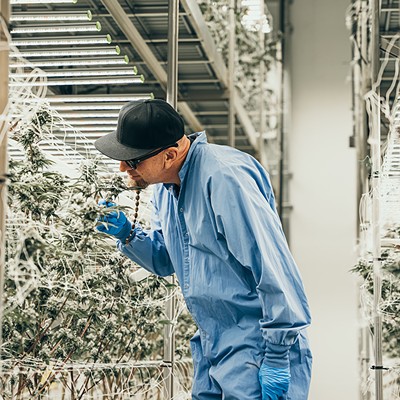The solutions to our most common human problems require individual responsibility and thinking locally. Our modern world is fast-paced and high-tech and has seen an age of vast globalization and the rise of technology.
This has come with no shortage of interesting and complex puzzles to solve. My late father called it the “perils of technology.” He even wrote a book by that title. I honestly never read it, but I may have to dig it out.
There’s homelessness, food insecurity, cheap, plentiful fentanyl and who knows what else all over the place. These are issues far too prevalent in Tucson. We face shortages of vital, finite natural resources in the form of water. Energy costs are high. Those sources are unsustainable. Economic times are challenging for individuals and small businesses alike. We have all seen, first, the pandemic, and then inflation, alongside widening political and economic divides. All of this affects supply chains, drives up prices and further divides us from our fellows and sense of tribe. It gets a little overwhelming.
It’s apparent this trend can only be reversed by thinking locally and by acting with intention. Thus, keeping it local breaks big problems down into bite-size chunks, and the intention produces a tangible result, inspiring more widespread participation, a feeling of justice and a positive feedback loop that can swell and spread into meaningful social change.
When you clean up your street, it’s your street that’s clean and to your benefit — at least for a while.
Another important factor in affecting positive change is in our product-purchasing decisions and which types of businesses we choose to frequent. In days long gone by, almost all businesses were sole proprietorship and locally based. Often a transaction was conducted between a customer and a businessowner hand to hand. The personal nature of this transaction created a trust and bond symbiotic in nature, building the relationship benefits both sides.
It is not impossible to recreate this symbiotic relationship via remote transaction, or with a faceless Wall Street corporation as the counterparty, but there is more to consider. Fiscally, if the transaction is local, with a small business, whose owner and staff live in the community, the taxes paid stay local and the money earned by the businesses owner and staff stay local and are spent yet again. Those people may pay property taxes. They may buy other goods and services. Our economy is circular. People tend to spend what they earn, somewhere. By keeping this circle of transactions close to home, we see more benefit to our community and our neighbors. A little bit of all of that comes back to us in many direct and indirect ways, like psycho-social benefits.
As you dive into this way of making things better for yourself, the more effort you make to keep it local — or at least intentional — the more creative, interesting, talented people you will come across. They will likely know other people you might like to know who produce things you might like to have. The quality and diversity of unique goods is astounding. Seeing all this firsthand creates admiration for others’ talents, and inspires a creative human desire to express our own talent. This spills over into a positive self-image and pride in ourselves and our comrades. This engaged awakened state has another category benefit, that of improved physical well-being. This helps our bodies heal and be resistant to illness.
We haven’t even addressed our nutrition and applying a local, more intentional mindset to the fuel we put into our bodies. Imagine the fringe benefits of knowing the person actually producing the food you eat. In Tucson, that is as simple as going to one of many local farmers markets or specialty shops. Again, engage with these people; they will be receptive and glad you did. They will know other farmers and ranchers. The care people of this ilk put into their work creates quality that blows away the commercial.
Let’s all look at the synergies and hidden benefits of looking at local options and appreciate what that intent can really do for our community at large.











